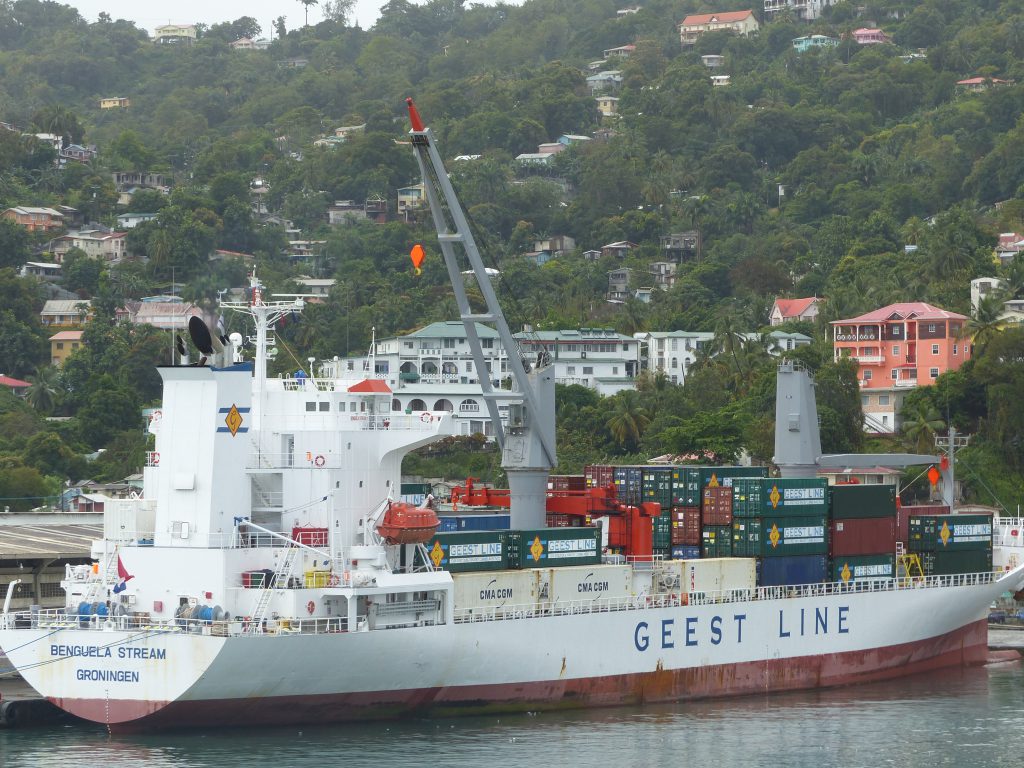Over the past few months, commentators have examined China’s increasing role in the Caribbean. The visit of Chinese President Xi Jinping in May 2013 most certainly turned many people’s attention to China’s encroachment and raised many eyebrows (see this CaribNation video for example).
China’s presence in developing countries has gradually increased over the last fifteen years, primarily driven by the need to sustain its economic growth. Fossil fuels and minerals have become the new currency of China’s relations with developing countries. In exchange, China invests in various sectors and infrastructure projects, undertaking the construction of ports, schools, hospitals, roads and railways.[1]
China has done much of the same in the Caribbean, although its involvement is fragmented due to continued tensions with Taiwan. Some Caribbean states – specifically Belize, Haiti, St. Kitts and Nevis, Saint Lucia, and St. Vincent and the Grenadines – formally recognize Taiwan,[2] resulting in little to no economic relations with China. Of the countries that do recognize China instead of Taiwan, relations have ranged from investment in extractive industries to finance through the provision of loans and grants from state-owned banks.[3] During his 2013 visit to the region, President Xi offered approximately $3 billion in soft loans alone.[4] China’s recent investment includes, among other projects: building a commercial port in Jamaica;[5]investing in Trinidad and Tobago’s off-shore oil industry;[6] purchasing a 70% stake in the Guyanese Omai Bauxite Mining, Inc.;[7] acquiring three sugar factories and leasing 30 000 hectares of cane fields in Jamaica;[8] investing in palm oil production in Suriname;[9] and financing the construction of the $3 billion Baha Mar resort in Nassau, Bahamas.[10]
Some describe China’s role in the developing world as “contemporary colonialism.”[11] Although its current involvement in the Caribbean cannot compare to the centuries spent under colonial rule, the relationship is similar in some respects. Like colonial powers, China’s engagement is not altruistic – it is gaining more from the Caribbean than it is offering. However, this is not to say that Caribbean recipients of Chinese investment are not gaining some benefit. Chinese investment is contributing to the construction of much needed infrastructure. It is also enhancing production capacity in certain industries, particularly agriculture and resource extraction. But there are major drawbacks.
First, Chinese investment is not positively contributing to employment or technology spillovers. A key component of Chinese investment in construction and infrastructure is the requirement that the labourers be employees of the Chinese firms undertaking the construction, and are generally flown in from China to complete the work.[12] While construction capacity may be lacking in the states receiving Chinese investment, contracts for infrastructure projects are not requiring some element of technology or knowledge transfer so that local capacity can develop. Neither are contracts stipulating a minimum requirement for hiring local skilled labourers, similar to what Chinese firms are demanding.[13] And with Chinese firms completing the construction projects with little reliance on Caribbean firms, there is little opportunity for technology transfer to local businesses.[14]
Second, the Caribbean’s preferential access to Canada, the United States and the European Union through its trade agreements may also prove beneficial to the Chinese but harmful to Caribbean businesses. If Chinese investors move to establish manufacturing operations to take advantage of the preferential access, the competition can potentially squeeze out local production if Chinese firms are more efficient.[15]
In addition, China’s growing presence in the Caribbean may hinder regionalization as state-to-state engagement with China may weaken economic integration within CARICOM.[16] The Community is not acting cohesively and engaging with the Chinese as a single bloc. States maintaining relations with Taiwan potentially limit this possibility, since China may refuse to engage with them. But CARICOM acts as a single bloc when dealing with Canada, the United States, and the European Union,[17] which helps promote regionalism and also ensures a more equitable distribution of benefits across the region. Bilateral engagement with China limits these possibilities.
So before Caribbean leaders eagerly accept Chinese investment with open arms, they should consider the impact it will have on economic development in the region and do more to alleviate the harmful affects.
Follow Sara on Twitter @SaraGhebremusse and connect with her on LinkedIn.
[1] M.W., “Sun, sand and Xi” (4 June 2013) The Economist, online: The Economist Newspaper Limited <http://www.economist.com/blogs/americasview/2013/06/china-and-caribbean>. [2] W Alex Sanchex & Lynn Tu, “China vs. Taiwan: Battle for Influence in the Caribbean” (13 March 2012), online: Council on Hemispheric Affairs <http://www.coha.org/china-vs-taiwan-battle-for-influence-in-the-caribbean/>. [3] Richard Bernal, “China’s Rising Investment Profile in the Caribbean” (October 2013), online: Inter-American Dialogue <http://thedialogue.org/PublicationFiles/IAD9325_Bernal_China_10142.pdf>. [4] M.W., supra note 1. [5] Rush Doshi & David Walter, “China’s Rising Tide in the Caribbean” (30 September 2013) The Wall Street Journal, online: Dow Jones & Company Inc. <http://online.wsj.com/news/articles/SB10001424127887324576304579072750474072912>. [6] Bernal, supra note 3. [7] Ibid. [8] Ibid. [9] Ibid. [10] Ibid. [11] Mark Klaver & Michael Trebilcock, “Chinese Investment in Africa” (2011) 4:1 The Law and Development Review 168. [12] Bernal, supra note 3. [13] Ibid. [14] Richard Bernal, “The Dragon in the Caribbean: China-CARICOM Economic Relations” (2010) 99:408 The Round Table 281 at 290. [15] Bernal, supra note 3. [16] Bernal, supra note 14 at 283. [17] See the Caribbean-Canada Trade Agreement, as well as the ongoing Canada-CARICOM Free Trade Agreement negotiations, the US-CARICOM Trade and Investment Framework Agreement, and the EU-CARIFORUM Economic Partnership Agreement (CARIFORUM consists of CARICOM Member States and the Dominican Republic).









Ralph Birkhoff
Your points are well taken Sara, and it is certainly an issue that needs to be considered on an individual national basis. In fact, China sees very little real economic advantage in the Caribbean itself. It is just too small a market, even when considered in total. Taking Cuba, Haiti, and Puerto Rico out of the equation, you are left with a total population of about 17m people for the entire region. In comparison, China has over 40 CITIES that have a larger population than Jamaica. China’s intent is in using these infrastructure projects to establish a ‘base of operations’ in this strategically advantageous geography to service its real interest in accessing and shipping South American resources, where the real benefits can be gained.
The proposed multi-billion dollar port redevelopment of Kingston Jamaica, and a similar assessment project recently completed by China Harbor Company in Trinidad, (the two main islands of interest to the Chinese) if completed, would provide China with controlling interests in two major strategic Caribbean port facilities, including shipping, transshipment, drydocking, and storage capabilities. In context with the proposed new China financed canal through Nicaragua, it is clear to see how they intend to control their own national shipping needs.
The Taiwan supporting countries do gain some limited benefit from that alliance, most recently in disaster relief, but it is peanuts compared to what the Chinese are investing. This past Sunday evening, Prime Minister Anthony of Saint Lucia delivered his New Years address, wherein he mentioned several times about the country’s investment relationship with quote, “China-Taiwan”. China-Taiwan?? What country is that? I am sure the Taiwanese were not impressed. The citizens of the Taiwan supporting countries are hearing all about the massive China projects in the region through the media, and this may be the PMs way of trying to fool his electorate into thinking that Saint Lucia is part of that promise, which it is clearly not. Perhaps Saint Lucia is now regretting the side it picked?
The Caribbean is hurting for foreign direct investment. The island economies are getting weaker. The debt-GDP ratios continue to climb notwithstanding very recent sovereign debt refinancing deals made only a few years ago. Public sector spending is still going up, and yet apart from the recent announcements in Barbados (are they the only island who understands fiscal responsibility?), none of the governments have any plan in place to reduce public sector employment or spending.
Consequently, when the red dragon shows up with millions of dollars to loan, like most foreign investment deals in the past, Caribbean governments are quick to make a short-sighted decision, and take the money while the taking is good.
Sara Ghebremusse
Thanks for your comments, Ralph. Chinese investment in the Caribbean is certainly strategic, as it is in other developing countries. What the Caribbean needs to do is ensure it is benefitting somehow too. The investment can be helpful, but if it is meant to create a transportation hub for Chinese trade, then what is the Caribbean gaining? That investment smacks of colonialism. Which does little for the region during this current economic climate in the region, as you correctly stated.
It will be interesting to see whether Saint Lucia is regretting siding with Taiwan. Prime Minister Anthony’s statement is likely playing to a foreign audience as well. Although the country has benefitted from recent disaster assistance, as you said, formerly recognizing Taiwan benefits that country more than anything. Perhaps Prime Minister Anthony is hedging his bets to potentially open Saint Lucia’s doors to the Chinese.
Gerard Wirth
Taking into consideration that for most island Nations the Chinese were the sole investors their investment was a god send to the Governments. China had excess capital all they are doing is investing it and trying to gain political influence.
Will all their investments be a resounding success ?
Like any investment they could be good but they could also be a failure.
The sectors they invest in are mostly infrastructural and fundamental areas so in all probability success would arise.
There must be I suggest caution to further major investment in Tourism….. mega resorts are nice to have but a lot of significant problems could with that. I am one who does not accept, at least as yet, Chinese on vacation will come to the Caribbean especially to gamble – my reasoning is, the China gamblers ,men, travel alone …why fly 16-hours when there is the best within a short flight in Macau and the immediate region?
The Caribbean needs to persuade the Chinese to invest in manufacturing……
Sara Ghebremusse
Gerard, I think Chinese investment in Caribbean manufacturing will only go so far. It could provide jobs, but manufacturing in the Caribbean is less competitive than in China. Unless the Chinese wanted to exploit some of the preferential access Caribbean states have to developed markets, I do not foresee any future investment in manufacturing.
Your comments on tourism are on point; the region needs to turn away from a greater reliance on tourism. Although more can be done to attract Chinese tourists. Because there is a growing economic class in China, perhaps the rich would be interested in spending their wealth in a more exotic location, rather than in their backyard.